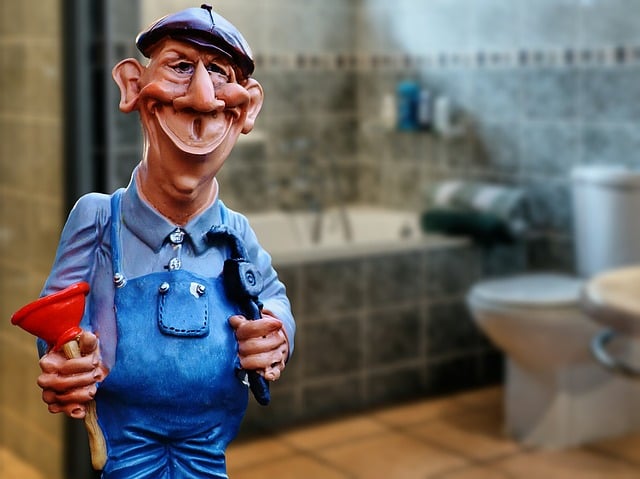DIY plumbing repairs offer cost savings and control but should be approached with caution. While minor issues can be tackled successfully, complex tasks like repiping or sewer line replacements demand professional expertise. Online tutorials provide a starting point but may not address unique challenges or local building codes. For optimal outcomes and safety, opt for licensed professionals when dealing with intricate plumbing systems to ensure effective, long-term solutions.
“From minor drips to major disasters, plumbing issues can range from annoying to costly. The age-old debate rages on: DIY or professional plumber? This article explores both sides of the coin, weighing the pros and cons of tackling plumbing repairs yourself versus calling in a licensed expert. Discover how DIY can offer savings and control but also present potential pitfalls, while professionals provide solutions for complex issues. Learn when to collaborate with a pro and when DIY may be the better choice, ultimately finding the right balance between cost-effectiveness and expert knowledge.”
- DIY Plumbing Repairs: Pros and Potential Pitfalls
- – Savings and control over the process
- – Access to online resources and tutorials
DIY Plumbing Repairs: Pros and Potential Pitfalls

DIY plumbing repairs have gained popularity as folks seek to take control of their home maintenance tasks. While many people feel empowered by the prospect of fixing drips and unclogging drains themselves, it’s essential to consider both the benefits and potential pitfalls. On one hand, DIY approaches offer cost savings, flexibility in scheduling, and a sense of accomplishment. With online tutorials and readily available tools, homeowners can tackle minor plumbing issues with relative ease.
However, DIY vs. professional plumbing is not always a straightforward decision. Complex repairs or hidden problems might require specialized knowledge and equipment that are beyond the scope of a novice. Mistakes in these situations could lead to further damage, costly repairs, or even safety hazards. Additionally, some tasks, like repiping or sewer line replacements, are best left to licensed professionals due to their intricate nature and potential environmental impact.
– Savings and control over the process

Many homeowners opt for DIY plumbing repairs, driven by the promise of significant savings and control over the process. Indeed, tackling minor issues like leaky faucets or clogged drains yourself can be relatively straightforward and cost-effective. Online tutorials and how-to guides are readily available, empowering folks to fix problems without calling a professional. This approach allows individuals to learn valuable skills and potentially avoid the overhead charges associated with hiring plumbers.
However, when it comes to more complex plumbing repairs or complete system overhauls, DIY methods may not be the best option. Professional plumbers possess specialized knowledge, access to high-quality tools, and years of experience troubleshooting various plumbing scenarios. They can identify subtle issues that might be missed by an amateur, preventing further damage and costly future repairs. While DIY solutions can save money on simple tasks, for extensive or intricate plumbing work, enlisting the expertise of a professional may prove more beneficial in the long run.
– Access to online resources and tutorials

In today’s digital age, a wealth of online resources and tutorials make DIY plumbing repairs seemingly accessible to all. These guides, often presented in step-by-step videos or written instructions, promise to equip homeowners with the knowledge to tackle leaks, clogs, and other minor issues without breaking the bank. For those with basic handyman skills, this can be an attractive option, offering both cost savings and control over their homes. However, when it comes to DIY vs. professional plumbing, it’s crucial to recognize that some tasks are better left to experts. Complex plumbing systems, for instance, require specialized tools and a deep understanding of local building codes, which may be beyond the average do-it-yourselfer’s capabilities. Moreover, while online tutorials can provide a foundational understanding, they often don’t account for unique challenges or unexpected complications that can arise during repairs, potentially leading to further damage if not handled correctly.
While DIY plumbing repairs offer cost savings and the allure of self-sufficiency, it’s crucial to acknowledge that they may not always be the best approach. For complex issues or situations involving potentially dangerous gas or water lines, enlisting a professional plumber is advisable. Comparing DIY versus professional services reveals that while DIY can be appealing for minor drips, significant plumbing disasters might be better handled by experts equipped with specialized tools and training, ultimately ensuring safer, more effective solutions.
